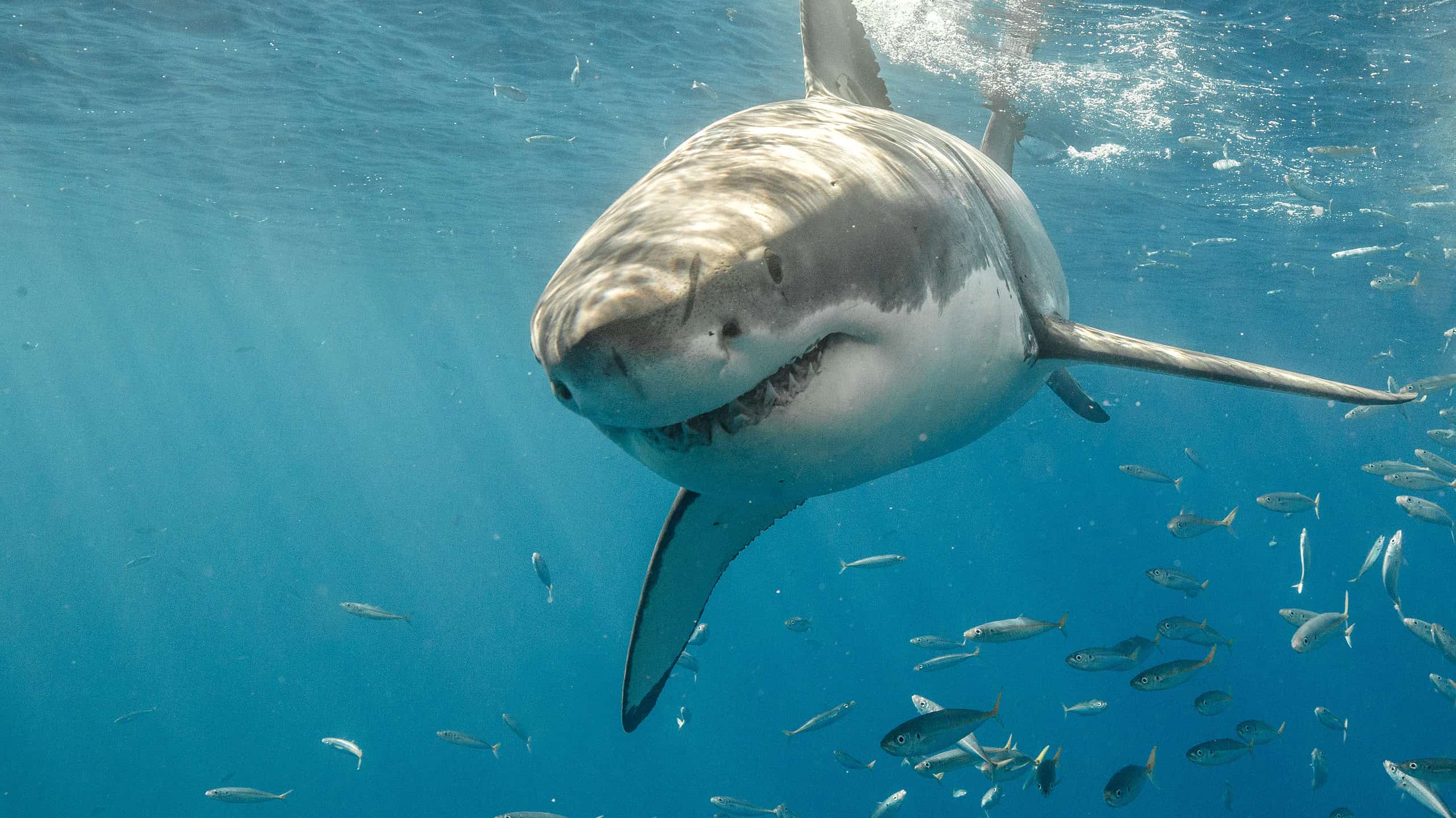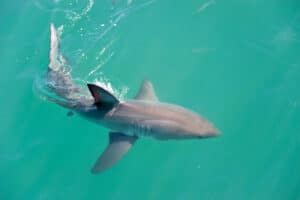Do you know that old saying “fish out of water”? If you look into its meaning, it has to do with not feeling comfortable in a certain environment. Perhaps it is a shy person in a crowded room, someone interviewing for a job they aren’t qualified for, or someone who has entered a situation they don’t know how to deal with.
We say fish out of water because what happens if you put a fish out of water? It will eventually die because it is an environment it’s not comfortable or can survive.
Just like the video posted below, this fish found itself out of water. This fish just happens to be a great white shark. The great white shark, for all of its power and terror in the waters, can’t survive on land.
Check out the Jaw-Dropping Video Below!
In the video, we see a family enjoying their day out on the beach Seaspray in Victoria, Australia. A great white shark is carried in on the tides up to shore without warning!
Unable to move and get back into the water, the great white shark, like the idiom of old, is floundering as a fish, quite literally out of water. A man jumps into action quickly and runs up behind the great white shark, still careful not to make it feel any more threatened than it already feels.
The guy grabs the back of the great white shark’s enormous tail and is seen dragging it back into the ocean. As we can see, the tide is rolling in fast, and the moment he puts the shark back, it is being pushed right back up to shore.
As the man helps the great white shark get back in, we hear a woman yell out to the kids trying to get back into the water. She warns this is not a good idea, as the great white shark is now in his territory.
Is It Normal Behavior for A Great White Shark to Beach Itself?
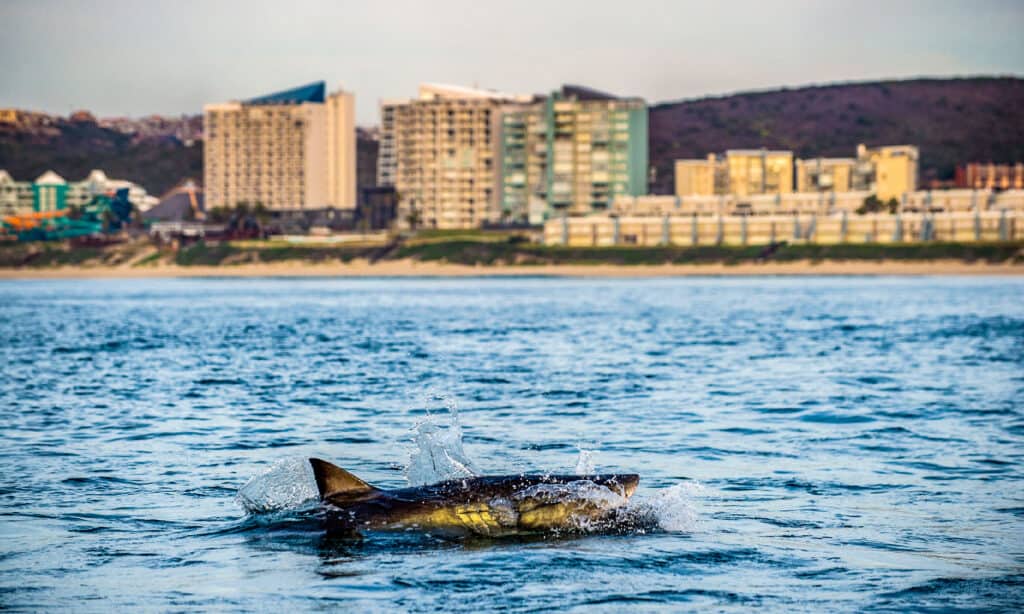
It is generally the juveniles who wind up in this situation as they are inexperienced.
©iStock.com/USO
The existing belief is that most sharks end up stranded on the beach either by accident or following a notable injury. There may also be other reasons that sharks become beached. Often it may be because they are hunting too close to shore. While it isn’t always known why sharks beach themselves, it is not a common occurrence although it can happen from time to time. It is generally the juveniles who wind up in this situation as they are inexperienced.
Here are some normal behaviors for great whites:
- White sharks are primarily solitary in nature.
- Instances of pairs traveling together and forming extended associations have been observed.
- Certain individuals may remain within feeding areas year-round.
- Other individuals exhibit a behavior of leaving feeding areas and engaging in extensive migration.
What’s the Biggest Shark Ever Recorded?
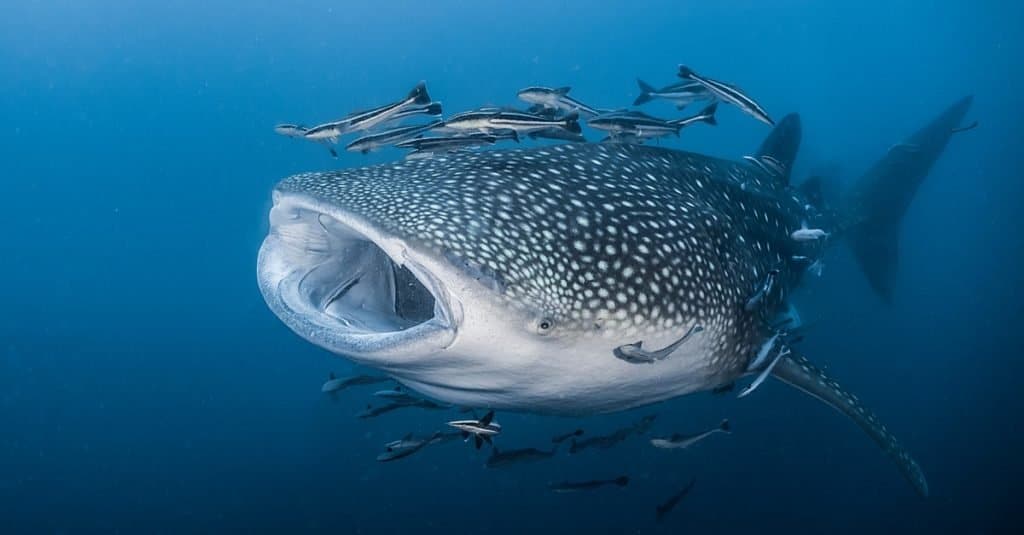
The whale shark eats a varied diet of krill, plankton, crab, and fish.
©Onusa Putapitak/Shutterstock.com
The biggest shark ever to be recorded was actually not a great white shark. It is the whale shark that is an absolute mammoth. This shark can weigh 13,607-18,144 kilograms (29,998-40,000 pounds) and reaches lengths of 40 feet.
To put it into perspective, this whale shark weighs as much as a fire extinguisher truck!
How Large Do Great White Sharks Get?
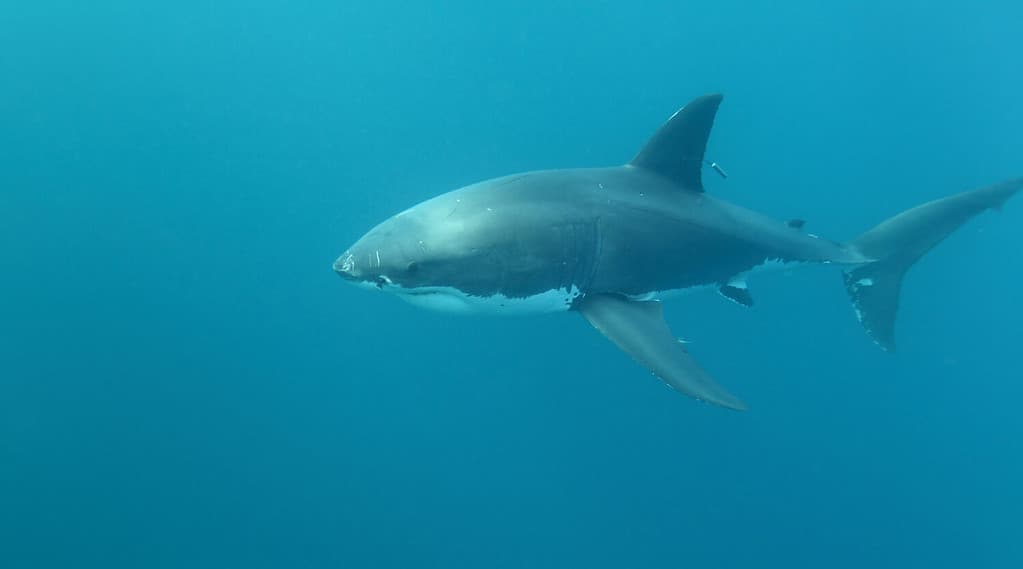
The largest great white on record is Deep Blue, who is over 20 feet long and weighs an estimated 2.5 tons.
©Alessandro De Maddalena/Shutterstock.com
Great white sharks can reach lengths of up to 20 feet, although the majority are smaller than this. Females are typically larger than males, with the average size of a female great white shark reaching between 15-16 feet, and the average size of a male reaching between 11-13 feet. The largest great white on record is Deep Blue, who is over 20 feet long and weighs an estimated 2.5 tons.
Thank you for reading! Have some feedback for us? Contact the AZ Animals editorial team.

